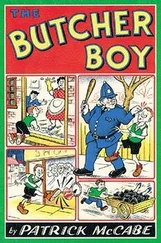“So he didn’t tell them anything either.” Brayer’s voice was gruff.
“Nothing anybody can use,” she said. “In the ambulance he was just raving. I think what he said was ‘a fucking war.’ ”
“What?” said Brayer.
“A fucking war. Over and over again. It could have been that it reminded him of something in Viet Nam. I didn’t know him well, but he was an ex-marine, wasn’t he? Although from what I’ve been told, that wouldn’t be too far off. You wouldn’t have to be delirious to make the connection. There were six besides DiGiorgio, and the house was a ruin.”
“Including Castiglione,” said Brayer. He paused for a moment. Then he said, “Look, Elizabeth. There’s the possibility that he was just describing what it looked like. Agreed. But there’s also a chance he was describing what he thought was happening. What if this Orloff character was involved in something? Say he was working for Castiglione, and somebody, maybe Toscanzio or Carl Bala, decided to take over and killed him? Then there was that family killed in their car. A reprisal? And there was another shootout in front of the Tropicana last night. Nobody knows what happened because when it was over the ones who were left standing put the ones that were hit into cars and drove off. But there was blood all over the pavement. So far nobody has been reported missing and no doctor within a hundred miles of Las Vegas has treated anybody for gunshot wounds. We’re monitoring for it. What’s it sound like to you?” He didn’t wait, just kept talking. “I’ll tell you what it sounds like. ‘A fucking war.’ ”
“You think so?” asked Elizabeth. “But who? And what do we do about it?”
“Well, obviously Castiglione was on one end of it. And I’ll bet whoever comes up top dog is on the other end. God knows what we’re supposed to do about it. I’ll tell you what I’d like to do. I’d like to pull all our people, you included, about a thousand miles eastward and let those bastards kill each other off. If it weren’t for the chance that it has something to do with Senator Claremont I think I’d damned well do it.”
She said, “That and your curiosity.” She heard him give a humorless little chuckle.
“You’re probably right,” he said. “And DiGiorgio.”
“Yes,” said Elizabeth, “I’m sorry about that, John. I didn’t know him well, but I guess you must have.”
“Oh. Yes,” he said, without inflection. Then his voice became animated again. “Jesus,” he said, “I think what bothers me most about it is that he had no business there in the first place. He was supposed to sit tight and watch, no matter what happened. He probably died trying to save that old piece of scum from something he had coming to him for years.”
Elizabeth said nothing. She didn’t see any reason to remind him that DiGiorgio was the only one found at the scene who hadn’t lived there, that he’d been found in the yard, not in his car, where every regulation, every procedure of the department insisted he should be. She knew Brayer had been thinking about that since he’d received the telephone call in the early morning.
“Now we’ve got to find out as much as we can without wasting time,” said Brayer. “But don’t do anything stupid.” He said it as though he had something specific in mind. “You find out what you can about the company and that’s all. The minute you see or hear anything that might be illegitimate you report it. And if it looks like it might be more than that you get on a plane and talk to me about it in person. You got that?”
“Got it,” said Elizabeth. “Don’t worry, John. I’m no hero.”
“I’ll be satisfied if you’re not a fool.” He hung up.
20
The building didn’t look like a place where there had been a murder. It looked still less like a corporation that would appear in the notebook of a United States senator. It consisted of a single one-story cinderblock structure with a small sign that read Fieldston Growth Enterprises , and a tiny lawn protected by a frail cordon of thirsty geraniums.
When Elizabeth walked in the front entrance the receptionist stopped typing and smiled with some sincerity, and Elizabeth believed the smile. This had the look of a place where a receptionist could get lonely. There were only the wood-paneled walls, the typewriter, and the telephone.
“Hello,” she said. “I’m Elizabeth Waring of the U.S. Department of Justice.” She held out her identification, but the woman didn’t look at it so she dropped it into her purse.
The receptionist was in her mid-forties but her hair was already tinted with a blue rinse, probably, Elizabeth decided, to draw attention to her vacant blue eyes. The eyes didn’t flinch or flicker. Any visitor was obviously a treat.
“May I help you?” asked the receptionist, her smile broadening. Elizabeth revised her estimate when she saw the tiny crinkles at the corners of the mouth—mid-fifties, she thought, but takes care of herself.
“I’d like to speak with Mr. Fieldston, please.”
“Oh, I’m sorry, Miss Waring,” said the receptionist. She seemed moved by the disappointment she was about to inflict. “Mr. Fieldston isn’t in today.”
“I wonder if you could tell me where I can reach him? I’d like very much to speak with him.”
“Mr. Fieldston is out of town this week,” said the receptionist, as though he had vanished into a realm that was out of reach to any form of human communication.
“Do you have a number for him? I’m on a tight schedule.”
“I’m sorry,” said the receptionist. “Mr. Fieldston is meeting with a client, and I’m never permitted to tell anyone where he is when he travels. I’m sure you understand.”
Elizabeth didn’t, but she was interested now. “Why is that?”
“The investment business is a difficult one. If Mr. Fieldston’s competitors knew in advance what he was buying, the negotiations might be complicated by other bids. If people knew he was acquiring a particular holding, the price of all surrounding holdings might be artificially inflated.” The way she added, “And so on,” signaled that the receptionist had either run out of imaginary excuses or reached the limit of her understanding of the business, but Elizabeth couldn’t decide which it was.
“Let me leave my number then,” she said. “I’m staying at the Sands.” She fished in her purse and found a calling card, and wrote on the back of it Sands Hotel, Room 219 . “If Mr. Fieldston calls, please ask him to get in touch with me.” She turned to go.
“What can I tell Mr. Fieldston?” asked the receptionist, already prepared with a message pad. “Is it about Mr. Orloff?”
Elizabeth hesitated, but she supposed that it was about Orloff, partly. “Yes it is,” she said.
“A shame,” said the receptionist. Elizabeth could see her write Re: Mr. Orloff on the note, then watched, fascinated, as the receptionist stapled her card to the note and placed it in her Out box. It was the only piece of paper in the box.
SOMEONE HAD BROUGHT her suitcase into the room during the day. Taped to it was a note on the front desk’s stationery: Please call Mr. Bechtman, Room 403 . The time on it was only four thirty. Two hours ago.
Elizabeth dialed 403 and the voice said, “Elizabeth, stay where you are. I’ll be there in a minute.” She sat down on the bed with the dead telephone to her ear. Brayer!
Brayer’s seersucker sport coat and sunglasses weren’t a disguise so much as a radical change in his personality. After more than a year of getting used to the dark, conservative suits that got shiny and wrinkled in the back from the long days he spent sitting at a desk, Elizabeth was fascinated.
Читать дальше












